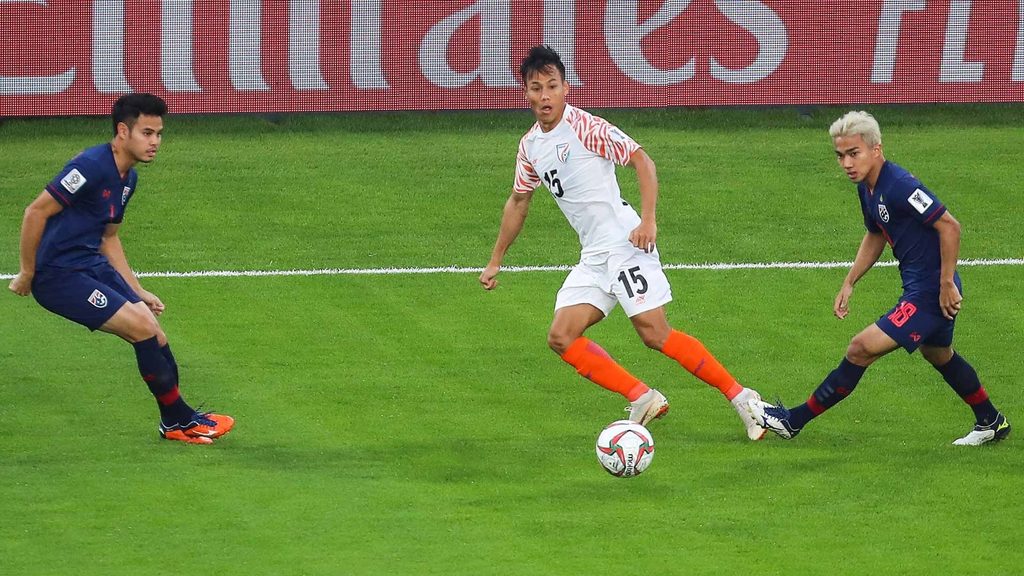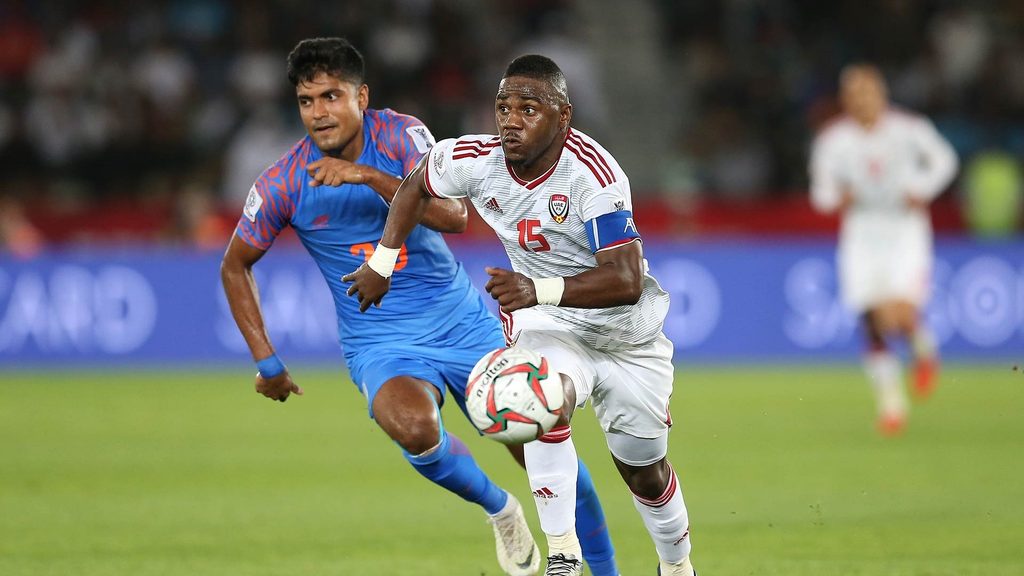A look back at the Blue Tigers’ memorable AFC Asian Cup campaign
India’s gradual renaissance in the global footballing arena received a major boost at the AFC Asian Cup, where the Blue Tigers competed commendably against top-quality continental rivals to try and stake their claim on a coveted trophy which, once again, evaded them.

India’s gradual renaissance in the global footballing arena received a major boost at the AFC Asian Cup, where the Blue Tigers competed commendably against top-quality continental rivals to try and stake their claim on a coveted trophy which, once again, evaded them. Playing Thailand, UAE and Bahrain in group A, Sunil Chhetri and Co. got off to a flyer, beating the War Elephants 4-1 before losing both their subsequent matches in agonizing fashion and thus, making an early exit from the tournament.
These are, however, early days in the making of the Blue Tigers, who to be fair, found themselves in uncharted territory. The level of players and the wealth of high-class football experience within the likes of UAE and Bahrain was ahead in their development compared to anything Chhetri and Co. had experienced in the past. Even so, India stuck in and made a proper match out of it, and could have beaten the hosts, if not for a combination of poor finishing and a lack of luck on the day.
While the underlying statistic of three points from three matches doesn’t make for good reading, a vivid analysis of their match-by-match numbers gives us a more comprehensive picture into an unsuccessful, yet positive campaign.
Blue Tigers outfox the War Elephants
 Picture courtesy: AFC Media
Picture courtesy: AFC MediaGoing into their first AFC Asian Cup fixture in close to eight years, the Indian national football team were under all sorts of pressure, arising from renewed expectations from billions back home. To make matters more challenging, Thailand went with their strongest 11 featuring a record goal-scorer alongside experienced individuals.
After a lackluster first-half devoid of any real quality, the Indian national football team led by a much-improved Chhetri came out all guns blazing in the second period to score three goals without letting the War Elephants get a clear sight of Gurpreet Singh Sandhu in goal. Chhetri’s Bengaluru FC teammate Udanta Singh made two of those goals and completed 36 passes with a 77.77% accuracy.
Anirudh Thapa was another one of the players who benefited from hearing the half-time whistle as the 21-year-old grabbed his first international goal just 20 minutes after the restart. In the defensive transition, Thapa contributed with three interceptions and two blocks which helped the Blue Tigers grow in confidence.
Fortune favoured the hosts
 Picture courtesy: AFC Media
Picture courtesy: AFC MediaUAE’s higher FIFA ranking coupled with their 1-1 draw against Bahrain made for an interesting tie for India, which if they could win, would be enough to take them through to the knockout stages. The match had a more even feel to it with a lack of ruthlessness ultimately settling the contest in favour of the hosts.
The Blue Tigers, for their part, created numerous chances, even hitting the crossbar on more than one occasion. Ashique Kuruniyan and Chhetri both missed rather easy chances on different occasions with Khalid Essa having quite a night in the UAE goal. While the forwards did their part to change the score-line, Sandesh Jhingan and Co. quickly subdued the hosts' counter-attacks to keep the match within reach. It was one of those nights in football where everything except the score-line belonged to the Indians.
Tactics backfire as Bahrain clinch decider
Despite going down against UAE, the Blue Tigers won a lot of hearts and heads thanks to their intricate transitions of play, focused mainly on soaking up pressure and hitting the opposition on the break. However, for some reason, India failed to execute that plan in the Bahrain match and instead, dropped deeper than they should have.
The midfielders and forwards’ inability to make the ball stick didn’t help either with Bahrain attackers flooding forward safe in the knowledge of a lack of numbers in the Indian forward line. Fatigue too, had a part to play in the defeat and that was evident in Pronay Halder’s tired tackle in the dying moments of the match.
One of the good things about the current crop of Indian football stars is that age is on their side. With an average age of less than 25, the Blue Tigers were the third-youngest squad at the AFC Asian Cup. Playing in a tournament of such magnitude and pedigree will only help in developing these young stars. Similar performances like these both at the national and international stage will be crucial if India are to achieve their goal of making an appearance in the World Cup finals, sooner rather than later.

























